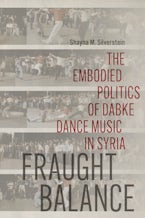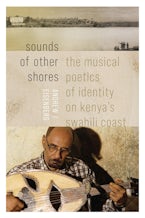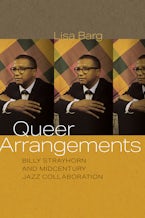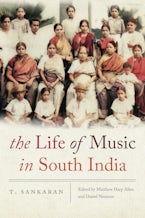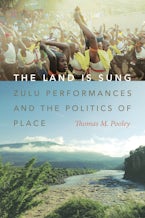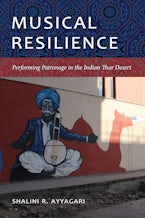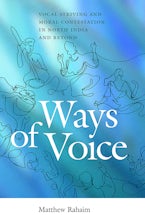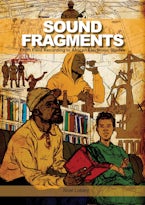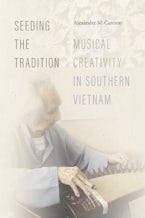- Home
- Music / Culture
- music
- history
- social science
- Black Rhythms of Peru
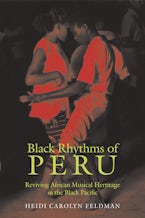
Black Rhythms of Peru
Reviving African Musical Heritage in the Black Pacific
Series: Music / Culture
Sales Date: 2007-11-01
How Afro-Peruvian music was forgotten and recreated in Peru.
Winner of the IASPM's Woody Guthrie Award (2007)
In the late 1950s to 1970s, an Afro-Peruvian revival brought the forgotten music and dances of Peru's African musical heritage to Lima's theatrical stages. The revival conjured newly imagined links to the past in order to celebrate—and to some extent recreate—Black culture in Peru. In this groundbreaking study of the Afro-Peruvian revival and its aftermath, Heidi Carolyn Feldman reveals how Afro-Peruvian artists remapped blackness from the perspective of the "Black Pacific," a marginalized group of African diasporic communities along Latin America's Pacific coast. Feldman's "ethnography of remembering" traces the memory projects of charismatic Afro-Peruvian revival artists and companies, including José Durand, Nicomedes and Victoria Santa Cruz, and Perú Negro, culminating with Susana Baca's entry onto the global world music stage in the 1990s. Readers will learn how Afro-Peruvian music and dance genres, although recreated in the revival to symbolize the ancient and forgotten past, express competing modern beliefs regarding what constitutes "Black Rhythms of Peru."
List of Illustrations
Acknowledgments
Introduction: Staging Cultural Memory in the Black Pacific
The Criollo Nostalgia of José Durand
Cumanana and the Ancestral Memories of Victoria Santa Cruz
The Peruvian Negritud of Nicomedes Santa Cruz
Peru Negro and the Canonization of Black Folklore
The Legend of Chincha
Susana Baca, Immigrant Nostalgia, and the Cosmopolitan Soul of Black Peru
Conclusion: Beginnings
Glossary
Notes
References
Discography
Index
HEIDI CAROLYN FELDMAN is a lecturer in the Department of Communication at the University of California, San Diego.
"Feldman... examines the recent history of Afro-Peruvian music and dance... Feldman doesn't shy away from tough questions on race and authenticity and on the effects of modernity and tourism on Peru's folklife. She looks closely at the double-edged sword of racial identity... The book is well-researched and written in a clear, lively voice, avoiding unnecessary jargon. Terms unfamiliar to lay readers are defined in a short glossary at the end. Like any good researcher, Feldman leaves the door open for further exploration and much discussion."
~Dirty Linen magazine
"After reading this book, one understands perfectly how vanishing cultural traditions can be rescued, reinvented, or reconstructed by a community and its cultural leaders. Brilliantly written, this book is valuable to everyone interested in how traditions are constantly reinvented and resignified."
~Raúl Romero, author of Debating the Past: Music, Memory and Identity in the Andes
"Heidi Feldman has written a complete, well-researched, and captivating book on Afro-Peruvian music—a heritage I am happy to see introduced to the world.""
~Alex Acuña, drummer, percussionist, and producer
""Feldman's book engagingly combines reflexive writing, fieldwork anecdotes, repertoire analysis, and the multiple voices that make up the history of the Afro-Peruvian music revival.""
~Sydney Hutchinson, Dance Research Journal
""Feldman... examines the recent history of Afro-Peruvian music and dance... Feldman doesn't shy away from tough questions on race and authenticity and on the effects of modernity and tourism on Peru's folklife. She looks closely at the double-edged sword of racial identity... The book is well-researched and written in a clear, lively voice, avoiding unnecessary jargon. Terms unfamiliar to lay readers are defined in a short glossary at the end. Like any good researcher, Feldman leaves the door open for further exploration and much discussion.""
~Dirty Linen magazine
""Feldman's clear and lively text benefits from her formidable research and extensive interviews.""
~Wholenote magazine

